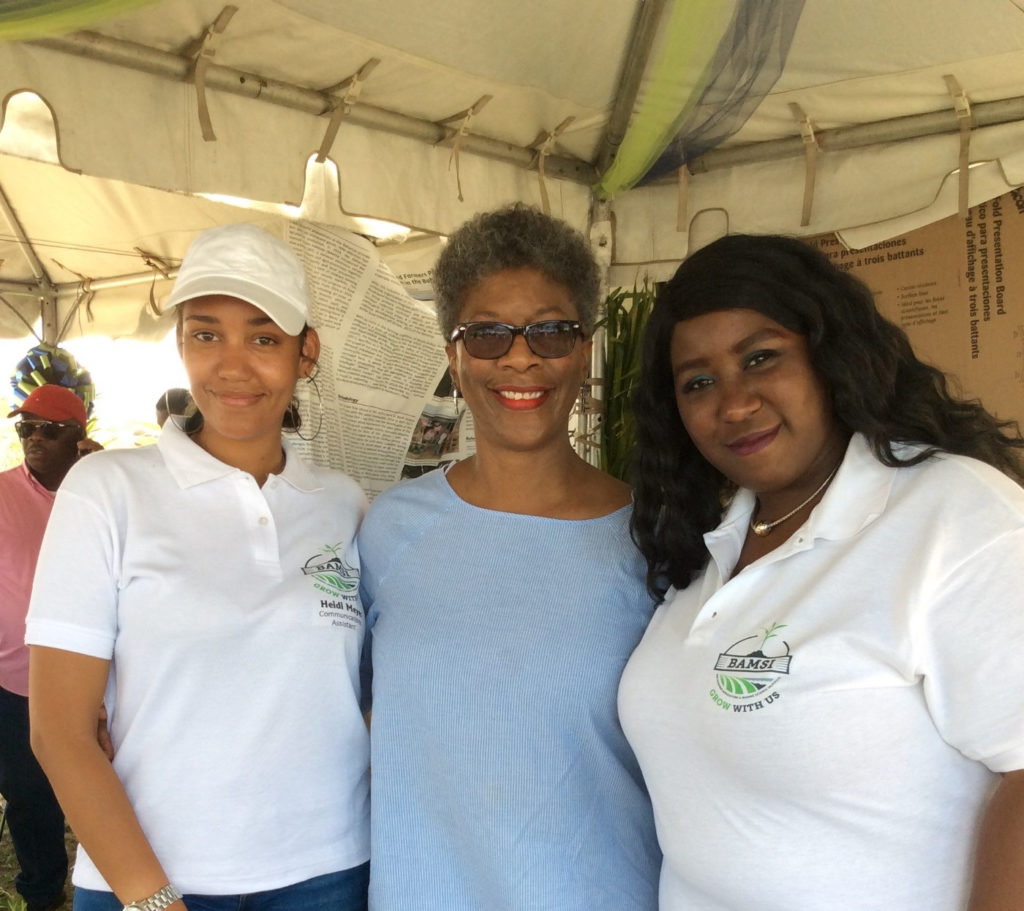Audrey Ingram Roberts, Executive Director of Source Development Consultants in Nassau, Bahamas, leads her firm with a clear objective: to deliver exceptional Human Resources Development services to facilitate sustainable change, particularly in the areas of organizational development, gender-responsive management systems, and strategic planning.
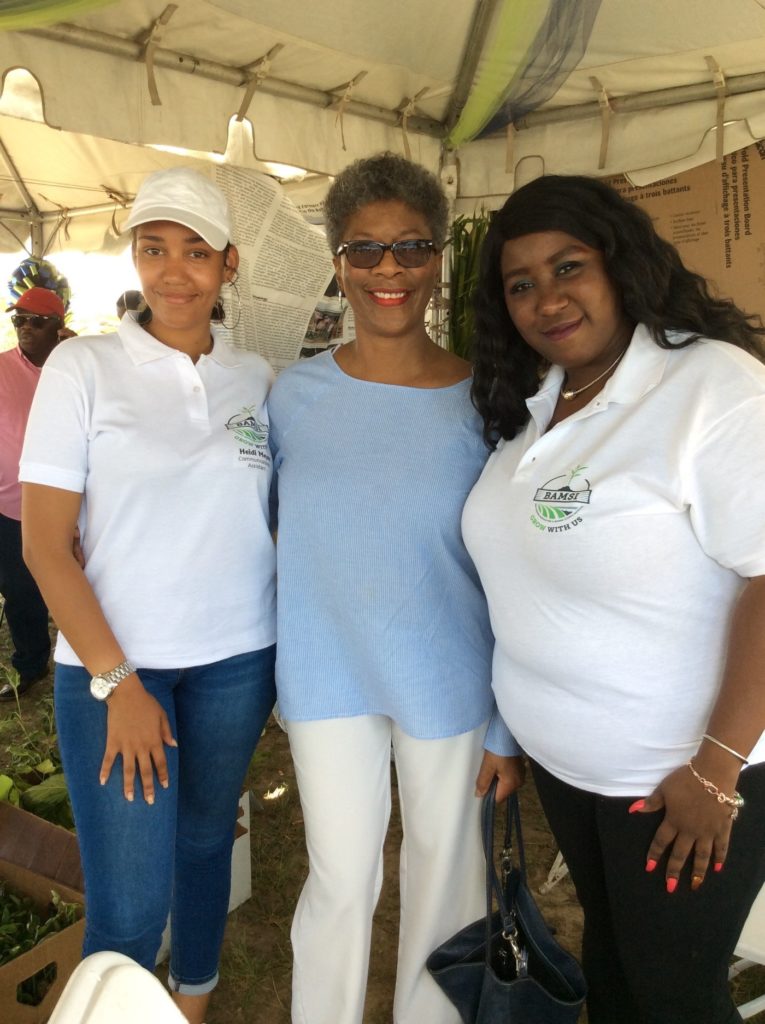
Ms. Roberts (middle) with two Information and Communications officers of the Bahamas Agriculture & Marine Science Institute (BAMSI). Their motto is ‘GROW WITH US.’ Website: BAMSIBahamas.com. Photo: Audrey Roberts.
Early in her career, Audrey worked at the Bureau of Women’s Affairs in Jamaica, which was set up in 1975, and the first of its kind in the Caribbean region. This experience, she says, was a “profoundly significant marker” in her career.
Her work as Rural Coordinator and later as a Project Development Officer gave Audrey an insider’s look to the similarities and differences that women experience in rural and urban settings. Whether it be at a farm or a law firm, women face similar gender-based biases. For Audrey, empowering women spawned in her a commitment to life-long learning.
It started with empowering the staff through personal awareness training and professional development. We extended this training into a wider constituency, to all the women of Jamaica.
Later on, Audrey participated in seminars and events that prepared her for her role in assisting the National Planning Institute of Jamaica to develop the Government’s first Five Year Plan for Women.”
On the importance of learning
Last year, Audrey, who is a natural networker, found out about the National Adaptation Plans: Building Climate Resilience in Agriculture (NAP-Ag MOOC) through the Coordinator of the Caribbean Women’s Network, who is always on the lookout for opportunities that might interest members and encourages them to keep learning.
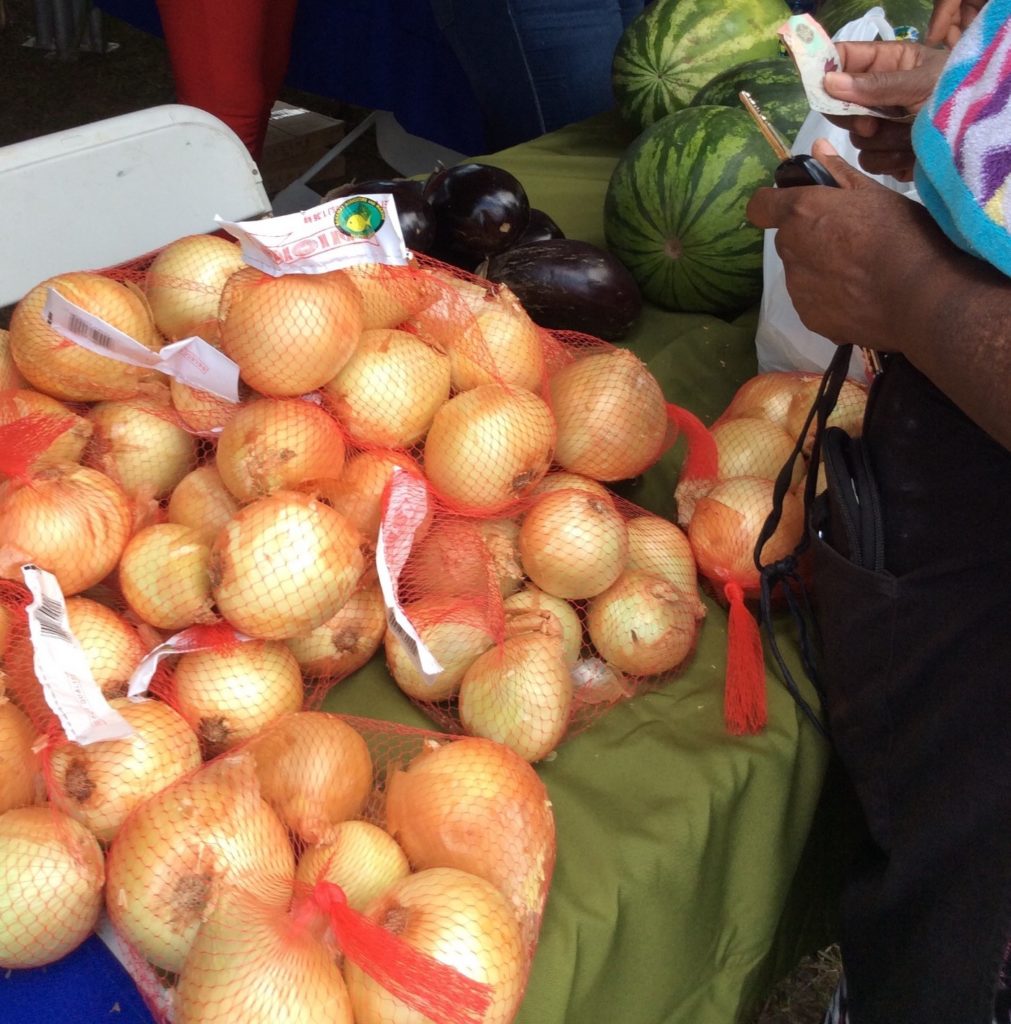
The onions and veggies are products of BAMSI or produced by entrepreneurs trained at BAMSI. Photo: Audrey Roberts.
She enrolled in the NAP-Ag MOOC for many reasons, including the fact that The Bahamas’ fragile ecosystems have been disturbed or even destroyed by development on several islands. From 1990 to 2016, The Bahamas has weathered 16 hurricanes, which are characteristically different, increasingly more intense and devastating. “Hurricane Joaquin (2015) and Hurricane Matthew (2016) highlight the vulnerability of our archipelago to climate events,” Audrey explains to us.
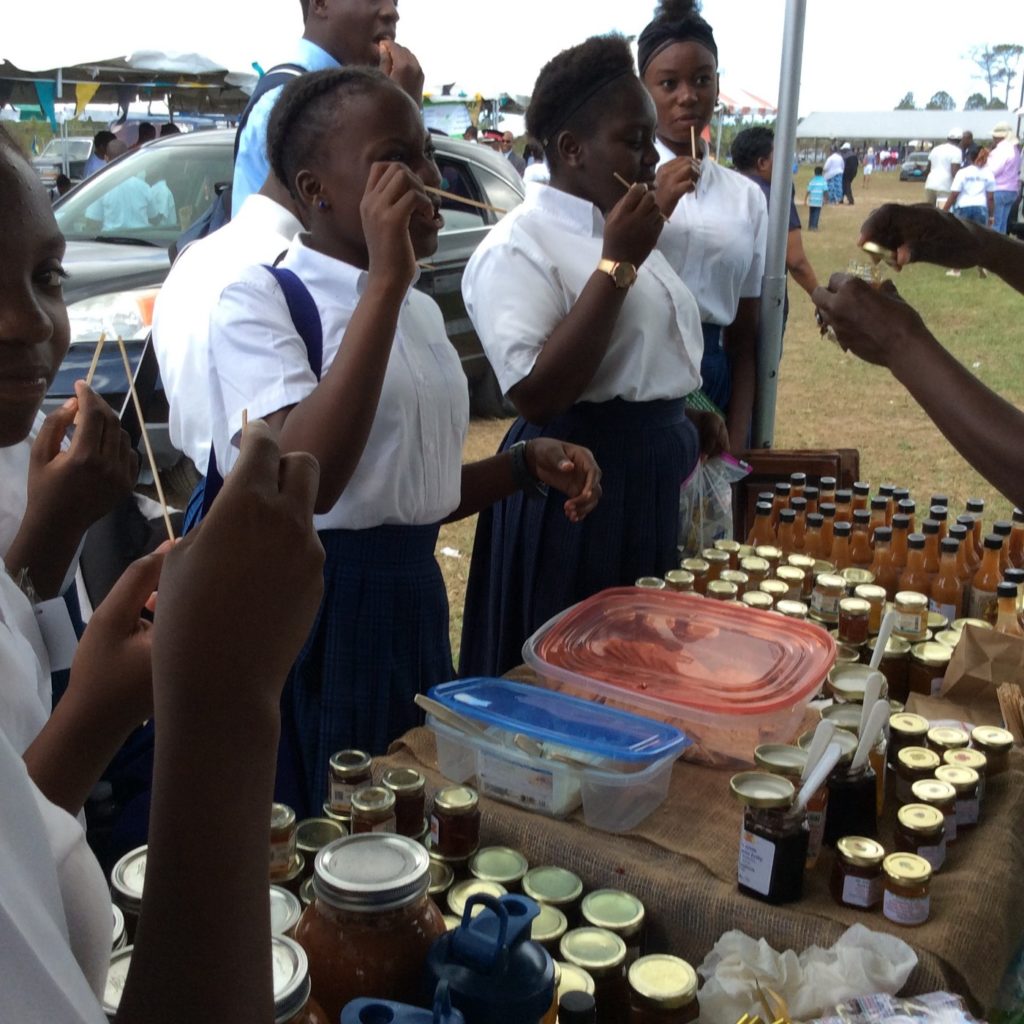
Schoolchildren sampling agro-processed items. Many schoolchildren attended, mostly girls. A few students spoke at the open mike session about their interest in agriculture and are proud of their school farm gardens because they can eat what they grow. Photo: Audrey Roberts.
Her second reason for taking the NAP-Ag MOOC relates directly to her professional role.
As a gender specialist, it is essential to know how to mainstream gender into adaptation planning. Gender-responsive climate change adaptation planning is, for me, the strength of the course. This part of the course deserves an A+ in its delivery, content, concepts and all aspects of skill building.
Audrey says, as far as she is aware there is not a strategic NAP or NAP-Ag for the Commonwealth of The Bahamas. “This became my most compelling reason for taking the course with my eye on certification,” she states.
The NAP-Ag is a new, emerging frontier. “Like all frontiers, it is exciting and challenging. More so if there is no NAP process occurring in the country,” she adds.
Audrey enjoyed the course and found that it inspired a sense of the opportunities in climate change and “dispelled anxiety” about the crisis of climate change by showing what could be done through effective planning.
“The NAP-Ag course has strengthened my capability as a consultant at a time when my country and region need the application of these transformative skills to the rapidly emerging challenges. And it has enhanced my role as an activist in the Caribbean women’s movement.”
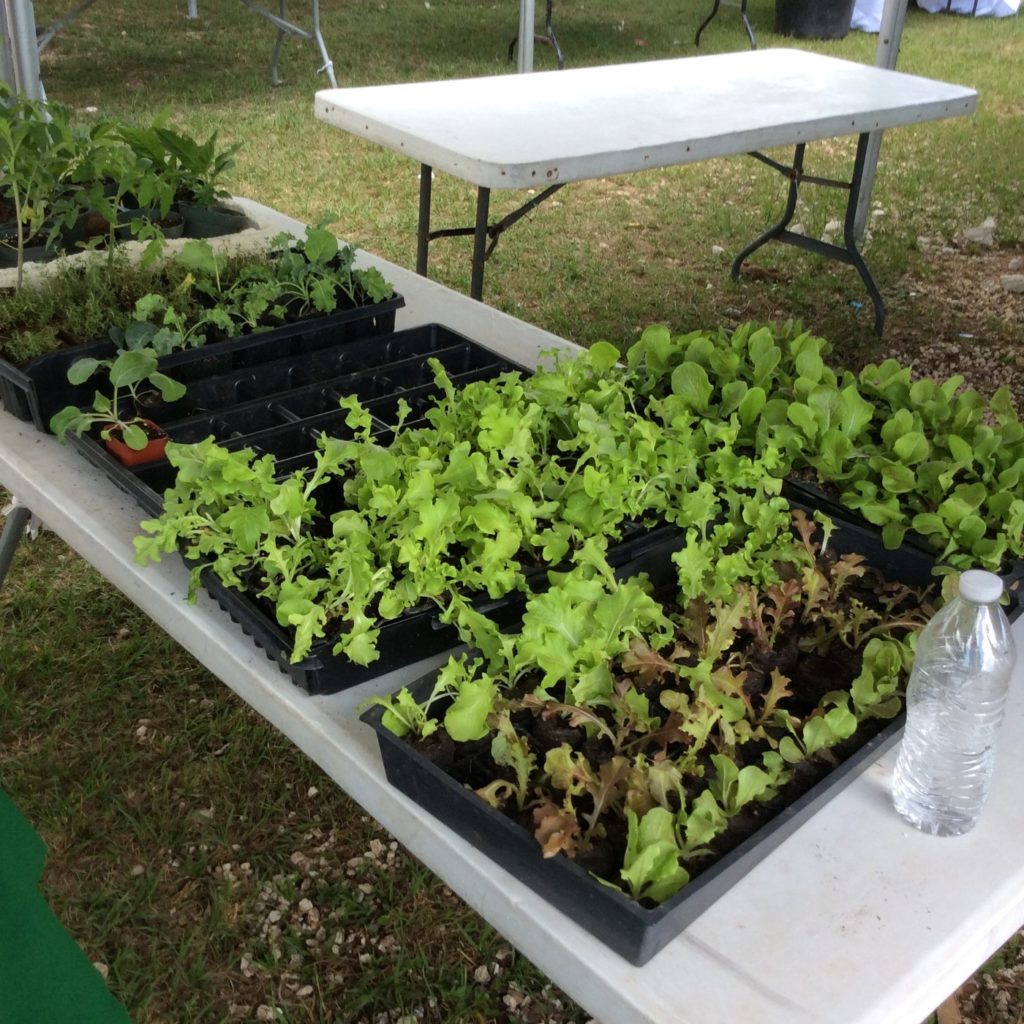
Photo: Audrey Roberts.
Do you want to learn more about Audrey’s work? Some of her publications include:
- Article on Gender Issues in The Bahamas in The Greenwood Encyclopedia of Women’s Issues Worldwide: North America and the Caribbean, Ed. Cheryl Toronto Kalny, Greenwood Press, Westport, Connecticut & London 2003
- A Vision for Gender and Development Cooperation, Caribbean Perspectives — an article in A Vision for Gender and Development, the Outcome of an Expert Group Workshop, Stockholm, published by Ministry of Foreign Affairs, Stockholm, Sweden 1996.

